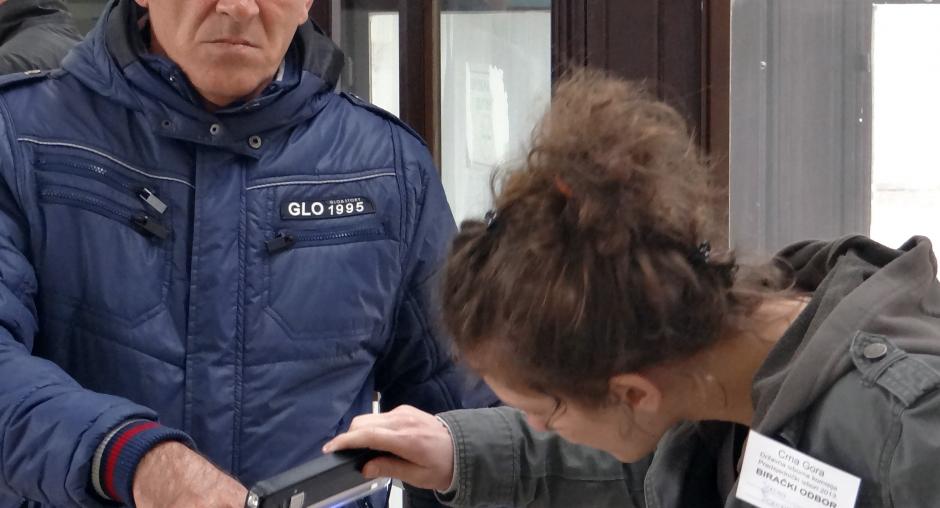Montenegro election professionally and efficiently administered, but allegations of misuse of state resources persist, observers say

PODGORICA, 8 April 2013 – Montenegro’s presidential election on 7 April was professionally and efficiently administered, but allegations of the misuse of state resources and a blurring of the line between state activities and candidate campaigning continued to be at odds with OSCE commitments and Council of Europe standards, international observers said in a statement issued today.
Candidates were able to campaign freely and without undue restriction, and freedom of speech, movement and association were mostly respected throughout the campaign. At the same time, mistrust in public institutions and the judiciary diminished public confidence in the electoral process, the statement said.
While the State Election Commission operated professionally and met legal obligations, the transparency and accountability of lower level election commissions, as well as information about their activities, was limited.
“From a technical standpoint, the election was administered in an efficient manner, and fundamental rights were mostly respected. At the same time, allegations of irregularities and an atmosphere of mistrust in the lead-up to the vote had a negative effect,” said Boris Frlec, the Head of the Limited Election Observation Mission (LEOM) of the OSCE Office for Democratic Institutions and Human Rights (OSCE/ODIHR). “Measures to enhance confidence in public institutions need to be taken to improve this atmosphere and to contribute to the improvement of the election process in Montenegro.”
“Yesterday, the citizens of Montenegro made their choice in a free way between two presidential candidates. This presidential election met many Council of Europe standards and commitments but, in practical terms, further improvements are required to ensure an electoral process free from misuse of state resources. The PACE delegation welcomes the active work of Montenegrin NGOs involved in the electoral process and invites the authorities to make better use of civil society’s contributions,” said Christopher Chope, the Head of the delegation of the Parliamentary Assembly of the Council of Europe. “Our Assembly will continue its close co-operation with the Montenegrin authorities, through its monitoring procedures and the Venice Commission, for the further consolidation of democracy.”
Authorities made significant efforts to implement necessary changes to the voter register, but there continued to be public concern over its accuracy, the preliminary statement said. The authorities acknowledged that a limited number of discrepancies remained, while allegations of inaccuracies were largely unsubstantiated, the preliminary statement said.
The legal framework for the presidential election generally provides an adequate basis for the conduct of democratic elections, but harmonization of applicable legislation would eliminate gaps and provide further clarity, particularly with regard to campaign finance and the media, the observers said.
Reforms to legislation on presidential campaign financing are required to enhance transparency, as well as to address the lack of independent oversight and the disproportionate reimbursement of campaign funds spent by the winner of the election, the preliminary statement said.
The media monitored by the OSCE/ODIHR LEOM provided voters with a range of information and opinions, and the public broadcaster met its legal obligations to provide free airtime to the candidates on equal terms. However, unbalanced reporting on the activities of government officials in news programmes was noted, and there was no effective independent body with the authority to monitor media reporting and its compliance with legislation, the statement said.
In the limited number of polling stations observed on election day, election commissions were procedurally well prepared and the voting process was administered efficiently. Both counting and tabulation of votes appear to have been conducted in a transparent and efficient manner, although further regulation of tabulation procedures is needed.
For further information contact:
Thomas Rymer, OSCE/ODIHR, +382 67 822 642 or +48 609 522 266, thomas.rymer@odihr.pl
Chemavon Chahbazian, PACE, +33 6 62 27 65 23, chemavon.chahbazian@coe.int
